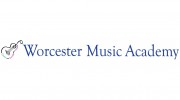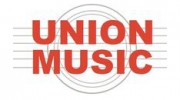Creating Community Through Joyful Music Learning
At Joy of Music Program (JOMP), we believe that music has the power to bring people together and create a sense of community. Our mission is to provide a safe, inclusive, and sustainable music community where individuals of all ages and backgrounds can come together to learn, create, and perform music.
Our Values
At JOMP, we value:
Joyful Music Learning: We believe that music learning should be a joyful and engaging experience.
Opportunity: We believe that everyone deserves the opportunity to learn and grow through music.
Music: We believe that music is a universal language that brings people together and has the power to transform lives.
Performance: We believe that music performance is an essential part of the learning process and provides a sense of accomplishment and pride.
Inclusive: We believe that everyone deserves access to quality music education and performance opportunities, regardless of their background or financial means.
No Barriers: We believe that music education should be available to everyone, regardless of physical ability or disability.
Who We Are
JOMP was founded in 1986 by Wendy Webster Ardizzone, who had a vision to create a musical community reflective of the diverse Worcester area. Today, JOMP is a vibrant and inclusive community that draws students, faculty, staff, volunteers, and donors together.
Our Story
JOMP's story begins with a stray sunflower seed that was discovered germinating near the door of JOMP's former location. This small seed was nurtured and grew into a beautiful plant, symbolizing JOMP's care for its students and its mission. Over the years, JOMP has grown to become a leading music education program, serving thousands of students of all ages and backgrounds.
Our Impact
At JOMP, we believe that music has the power to transform lives and bring people together. Our programs are designed to provide a safe, inclusive, and sustainable music community where individuals can learn, create, and perform music.
Our Programs
JOMP offers a range of programs, including:
- Private Lessons: Talented and dedicated music faculty caring for students of all ages and skill levels.
- Classes for Children: Get a JOMP Start in music exploration for beginners.
- Ensembles & Workshops: Making music with others.
- Summer Lessons & Classes: A time to play and learn.
Our Facilities
JOMP's facility is fully accessible and features 22 fully equipped music teaching studios and the Shapiro Concert Hall.
Our Faculty
JOMP's faculty is composed of over 40 musician educators who are dedicated to providing high-quality music education and performance opportunities.
Our Partners
JOMP partners with local agencies, schools, and organizations to provide free or low-cost music programs and events to the community.
Getting Involved
At JOMP, we believe that everyone has a role to play in creating a vibrant and inclusive music community. Here are some ways you can get involved:
- Volunteer: Share your skills and talents with us.
- Donate: Support JOMP's mission and programs.
- Support a Student: Help a student in need by providing financial aid.
Join Our Community
At JOMP, we believe that music has the power to bring people together and create a sense of community. Join us in our mission to create a vibrant and inclusive music community where everyone is welcome.
Acoustics and Sound Quality
The reviewers have commented on the excellent acoustics and sound quality of the music school. Philippe Raynaud noted that the sound is "beautifuly good" and honest, with a real sense of the music. He also mentioned that he likes the way the sound is modified in certain churches, suggesting that the school's acoustic design is versatile.
Teaching and Value
The reviewers were highly impressed with the teaching at the music school. Brad Alpert praised the teachers as "excellent" and noted that his sons are learning quickly. Abigail Alpert also praised the teachers as "outstanding" and noted that the school provides excellent value for the price. Both reviewers mentioned that their children are learning to play clarinet and trombone.
Limitations
However, Philippe Raynaud did mention one limitation of the school: the seating arrangement, which can make it difficult to see above the head in front of him. He suggested that a more elevated scene would be welcome to improve the viewing experience.





